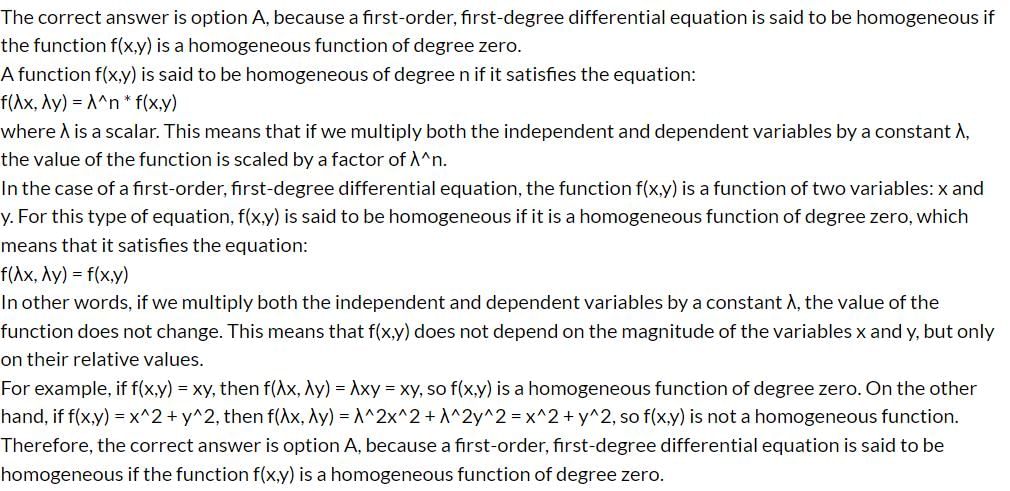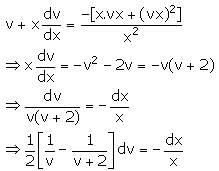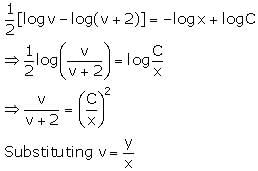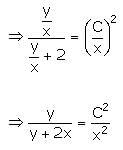Test: Homogeneous Differential Equations - JEE MCQ
Test Description
10 Questions MCQ Test - Test: Homogeneous Differential Equations
Test: Homogeneous Differential Equations for JEE 2025 is part of JEE preparation. The Test: Homogeneous Differential Equations questions and answers have been prepared
according to the JEE exam syllabus.The Test: Homogeneous Differential Equations MCQs are made for JEE 2025 Exam.
Find important definitions, questions, notes, meanings, examples, exercises, MCQs and online tests for Test: Homogeneous Differential Equations below.
Solutions of Test: Homogeneous Differential Equations questions in English are available as part of our course for JEE & Test: Homogeneous Differential Equations solutions in
Hindi for JEE course.
Download more important topics, notes, lectures and mock test series for JEE Exam by signing up for free. Attempt Test: Homogeneous Differential Equations | 10 questions in 10 minutes | Mock test for JEE preparation | Free important questions MCQ to study for JEE Exam | Download free PDF with solutions
Test: Homogeneous Differential Equations - Question 1
The solution of the differential equation is :
is :
Detailed Solution for Test: Homogeneous Differential Equations - Question 1
Test: Homogeneous Differential Equations - Question 2
The first order, first degree differential equation y’ = f(x,y) is said to be homogeneous, if
Detailed Solution for Test: Homogeneous Differential Equations - Question 2
Test: Homogeneous Differential Equations - Question 3
The solution of the differential equation  is S:
is S:
 is S:
is S:
Detailed Solution for Test: Homogeneous Differential Equations - Question 3
Test: Homogeneous Differential Equations - Question 4
The solution of the differential equation is :
Detailed Solution for Test: Homogeneous Differential Equations - Question 4
Test: Homogeneous Differential Equations - Question 5
The solution of the differential equationis :
Detailed Solution for Test: Homogeneous Differential Equations - Question 5
Test: Homogeneous Differential Equations - Question 6
The solution of the differential equation is :
Detailed Solution for Test: Homogeneous Differential Equations - Question 6
Test: Homogeneous Differential Equations - Question 7
Find the differential equation of all the straight lines touching the circle x2 + y2 = r2.
Detailed Solution for Test: Homogeneous Differential Equations - Question 7
Test: Homogeneous Differential Equations - Question 8
The solution of differential equation x2dy + y(x + y)dx = 0 when x = 1, y = 1 is:
Detailed Solution for Test: Homogeneous Differential Equations - Question 8
Test: Homogeneous Differential Equations - Question 9
The solution of the differential equation is :
Detailed Solution for Test: Homogeneous Differential Equations - Question 9
Detailed Solution for Test: Homogeneous Differential Equations - Question 10
Information about Test: Homogeneous Differential Equations Page
In this test you can find the Exam questions for Test: Homogeneous Differential Equations solved & explained in the simplest way possible.
Besides giving Questions and answers for Test: Homogeneous Differential Equations, EduRev gives you an ample number of Online tests for practice
Download as PDF




 .......(i)
.......(i)



 ......(ii)
......(ii)













